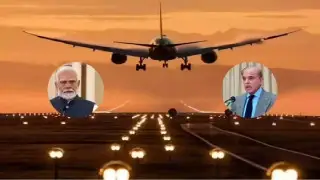
X
The UN Security Council has made its first-ever demand for a ceasefire in Gaza. Meanwhile, the United States, a staunch ally of Israel known for vetoing similar resolutions in the past, abstained from voting.
The resolution, urging an 'immediate ceasefire' during the ongoing holy month of Ramadan and aiming for a 'lasting' peace, was passed with unanimous support from the other 14 Security Council members.
The Security Council just approved a long-awaited resolution on Gaza, demanding an immediate ceasefire, and the immediate and unconditional release of all hostages.
This resolution must be implemented. Failure would be unforgivable.— António Guterres (@antonioguterres) March 25, 2024
This decision follows the recent veto by Russia and China of a US-sponsored resolution seeking an 'immediate and sustained ceasefire' in the conflict between Israel and Hamas.
Proposed by the council's 10 elected members and backed by Russia, China, and the Arab Group, the resolution is a response to escalating violence and humanitarian crises in Gaza.
Concerns about the dire situation in Gaza prompted the Arab Group to call for unity and urgency among council members to end the bloodshed and prevent further suffering.
With Ramadan ending on April 9, the ceasefire, if approved, would last for two weeks, aiming to pave the way for a permanent and sustainable peace agreement.
The resolution also emphasizes the urgent need to protect civilians, facilitate humanitarian aid delivery, and secure the release of all hostages in Gaza.
While the US abstained from voting, its ambassador to the UN, Linda Thomas-Greenfield, expressed concerns about the resolution's potential impact on diplomatic negotiations and urged support for ongoing peace efforts.
This abstention marks a departure from previous US actions, where it vetoed similar ceasefire resolutions, drawing criticism for its perceived leniency towards Israel amidst escalating tensions.
Despite the resolution's passage, tensions remain high, with key disagreements among world powers over the language and approach to addressing the Gaza crisis.
Russia and China, in particular, criticized the US-sponsored resolution for its perceived ambiguity and failure to directly address the root causes of the conflict.













Copyright © 2025 Top Indian News
